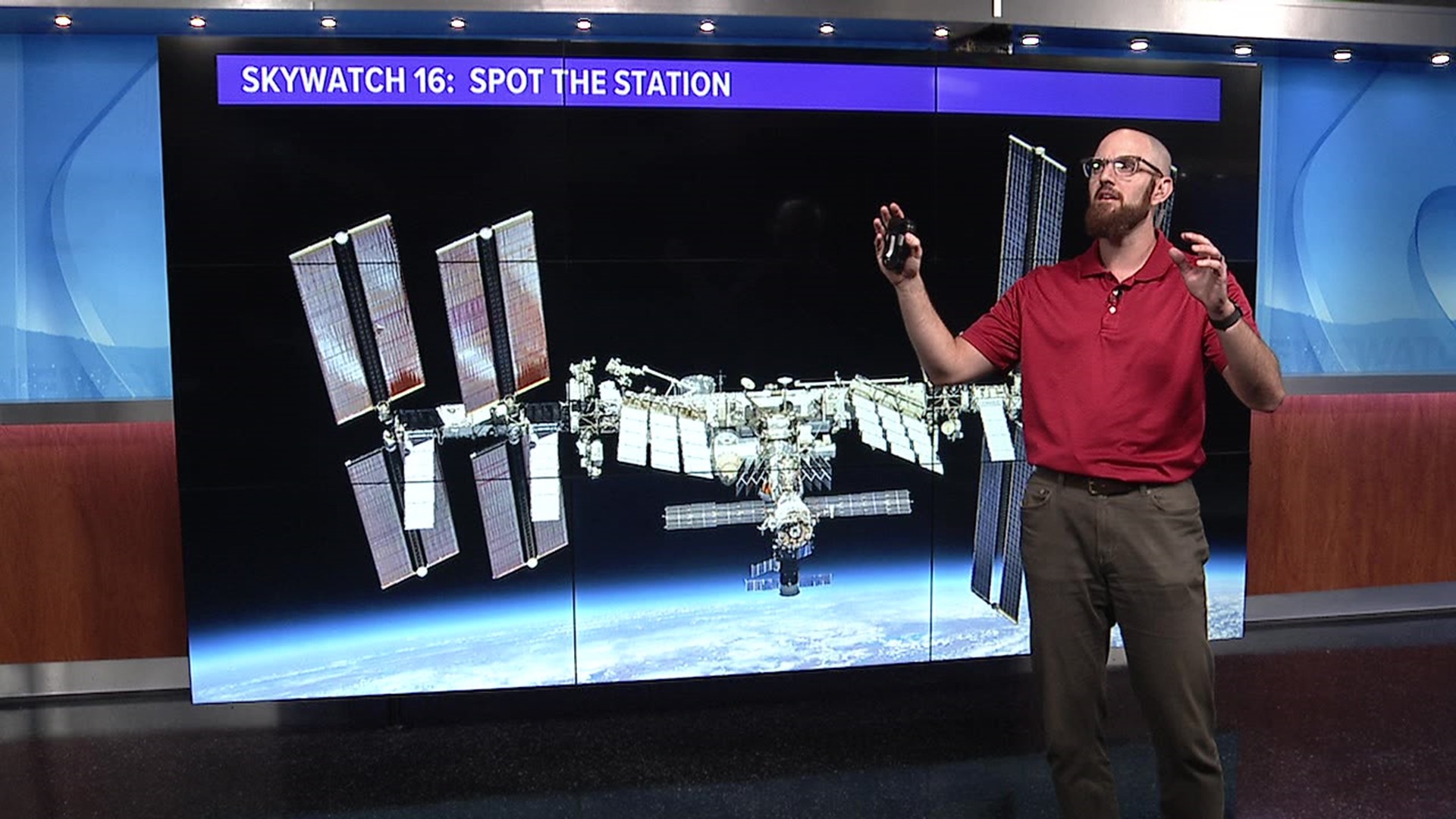PENNSYLVANIA, USA — On warm summer nights like the ones we have coming up, it's not unusual to see the International Space Station fly overhead in the sky.
It's been out there for decades, and we've been able to see it for decades. One of the more popular questions is why it seems to appear and then suddenly vanish long before it goes below the horizon.
Well, it has to do with a couple of things—the shadow from the Earth and the sun's angle going into all of these attachments that hang off of the International Space Station.
Think of it this way: You're standing on the Earth and don't have a flat view of the horizon. You've got trees, you've got buildings, you've got stuff in the way of you and a flat horizon line. You've got the International Space Station making an arc across the sky. It usually starts in the west and heads off across the eastern sky.
On a bright, sunny day, you won't be able to see anything because it's daytime. And there's no way for the sun's rays to reflect off those attachments hanging off the International Space Station that allow you to see that little bit of light going across the horizon.
Sometime near or after dusk, you'll see that light hitting some of those attachments, hanging off and reflecting back towards you.
But then it disappears as soon as it dips and goes back into Earth's shadow. As the sun's rays come across, you've got that shadow on the other side of the Earth. And that doesn't allow you to see it anymore. So, as soon as that little light in the sky goes across and dips into the Earth's shadow, you can't see it.
So now that you know that, here are some great opportunities to see the International Space Station over the next few days.
We've got one coming up on Wednesday around 10:30 p.m. That will last three minutes.
If it's a little too cloudy that night, 9:50 p.m. Thursday, you have one that goes across the sky for five minutes.
And then this weekend, a great pass on Sunday, shortly after 9 p.m. That one will last seven minutes.
Three exceptional chances to see the International Space Station in our summer night sky this week.

